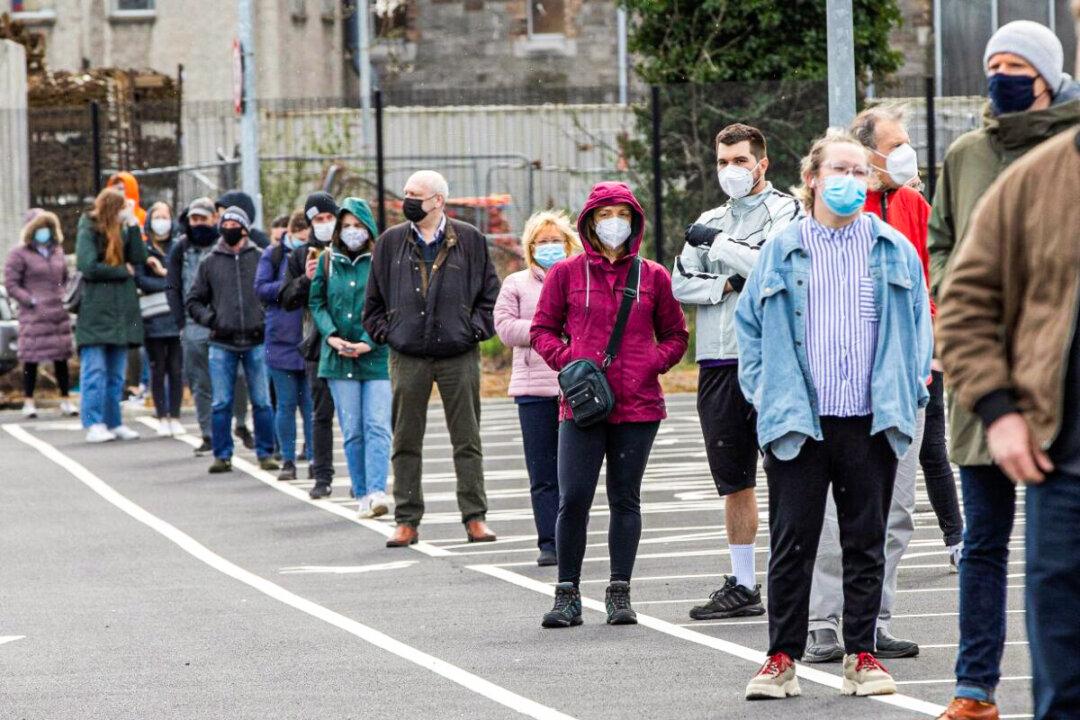Major economies in Europe have started to roll back COVID-19 restrictions that were implemented in recent weeks in response to a spike in cases and hospitalizations.
In England, people won’t have to wear masks in public or show proof that they’ve been vaccinated to enter some venues, beginning on Jan. 27, according to UK Prime Minister Boris Johnson.





